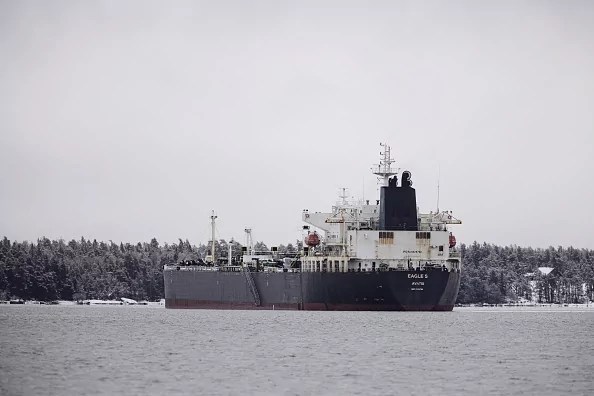


A series of purported acts of sabotage targeting undersea cables has raised concerns about the growing threat facing the interconnectivity of the international community.
Undersea cables date back to the 1850s and initially involved the telegram, and now, nearly 200 years later, there are nearly 750,000 miles of these cables under various bodies of water across the globe, which have increasingly been targeted by adversaries.
The world relies on these cables for internet access, e-commerce, and entertainment. The cables can get damaged over time due to regular wear and tear after decades, but there have been an increase in these incidents especially in eastern Europe since 2022.
In the latest apparent high-profile instance of sabotage, Taiwan accused a Chinese ship of damaging one of the undersea cables connecting the island to the internet last week, and it comes after a series of similar incidents in the Baltic Sea that have been attributed to Russia.
While there are instances where the cables are damaged unintentionally, Herming Chiueh, deputy head of Taiwan’s digital ministry, told the Wall Street Journal that the chances of the damage in the incident last week being an accident were near zero.
“You need to accidentally [drop your] anchor on the cable, and then you need to accidentally turn on your engine with the anchor down, and even [if] you realize your anchor is down, you need to keep the engine moving until you cut the cable,” Chiueh said.
China’s Taiwan Affairs Office denied that there was an act of sabotage, saying damags to undersea cables are “common maritime accidents” and that Taiwan was making accusations “out of thin air,” according to Reuters.
There have been a number of disruptions in the undersea cables in the Baltic Sea as well, which have largely been attributed to Russia. Murphy said the number of these incidents has increased since the beginning of Russia’s full-scale invasion of Ukraine in February 2022.
Attacks on undersea cables fall into the category of “gray zone” acts, which are hybrid operations that are generally nonmilitary destabilizing activities, such as influence operations, cyberattacks, and disinformation campaigns.
“As global tensions rise, this could be seen as an act of war,” Erin Murphy, an expert with the Center for Strategic and International Studies, told the Washington Examiner. “I don’t see this going away,” she added. “I see more acts of sabotage” of undersea cables happening.
On Dec. 25, 2024, a cable connecting Finland and Estonia under the Baltic Sea suffered a power outage, and local officials said they took control of an oil tanker traveling from Russia a day later under the suspicion that it may have been responsible for the outage.

It is not always easy to ascertain responsibility for these attacks. In this instance, Russia was accused of using its “shadow fleet” of tankers, which it uses to circumvent Western-imposed price caps on Russian oil transported by sea to damage the cable.
“We assume at this stage that the vessel in question is a member of the shadow fleet,” the head of Finland’s customs agency, Sami Rakshit, said at the time.
In November 2024, a cable linking Germany and Finland ruptured in the Baltic Sea, and German Defense Minister Boris Pistorius said at the time that “no one believes that these cables were cut accidentally.”
“Russia is systematically attacking European security architecture,” the foreign ministers of Germany, France, Poland, Italy, Spain, and the United Kingdom said in a joint statement. “Moscow’s escalating hybrid activities against NATO and E.U. countries are also unprecedented in their variety and scale, creating significant security risks.”
The threat of these continued acts of sabotage is more of a concern for European nations than the United States given the geography of the regions, but President-elect Donald Trump’s first term and comments made since winning the election have raised questions about his commitment to the U.S.’s European allies and the NATO alliance.
CLICK HERE TO READ MORE FROM THE WASHINGTON EXAMINER
“I think Trump is going to have to think [about] how do we cooperate with NATO” as it relates to future acts of sabotage that likely will target NATO members around the Baltic Sea, Murphy added.
Trump has said he believes Europe should continue to increase its defense spending. Earlier this week, he urged NATO to boost the minimum defense spending mark from 2% of a country’s gross domestic product to 5%, which the U.S. did not hit in 2024.
